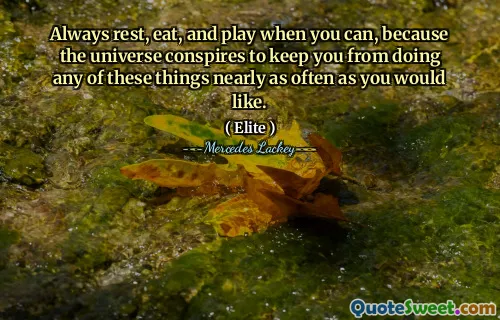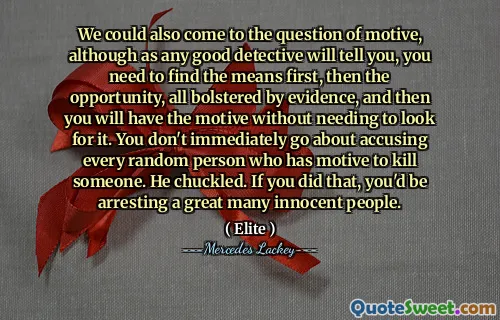
We could also come to the question of motive, although as any good detective will tell you, you need to find the means first, then the opportunity, all bolstered by evidence, and then you will have the motive without needing to look for it. You don't immediately go about accusing every random person who has motive to kill someone. He chuckled. If you did that, you'd be arresting a great many innocent people.
This quote highlights a fundamental principle of investigative reasoning: evidence and context are key before assigning blame. It underscores the logical sequence a detective must follow—starting with means, then opportunity, supported by evidence—to truly understand a crime. Motive, often considered the cornerstone of accusation, is reframed here not as a starting point but an eventual conclusion drawn from established facts. Such an approach avoids rash judgments based merely on surface impressions or assumptions. The humorous remark about arresting many innocent people if motive alone guided accusations reveals the dangers of hasty conclusions. This philosophy applies beyond detective work to how we navigate everyday conflicts and judgments. It encourages critical thinking and restraint, reminding us to base opinions and decisions on solid information rather than conjecture or bias. In broader terms, this thought fosters justice and fairness in social interactions, policing, and legal processes. It is a call for patience and due diligence, emphasizing that a cause without evidence is insufficient grounds for accusation. Through this lens, the quote invites us to adopt a more measured, methodical mindset in all aspects of life where truth and fairness matter. It also softly critiques impulsiveness and the human tendency to jump to conclusions, urging us instead to respect the complexity of causality. Overall, the message is a timeless reminder of the value of careful investigation before forming conclusions that deeply affect lives.







